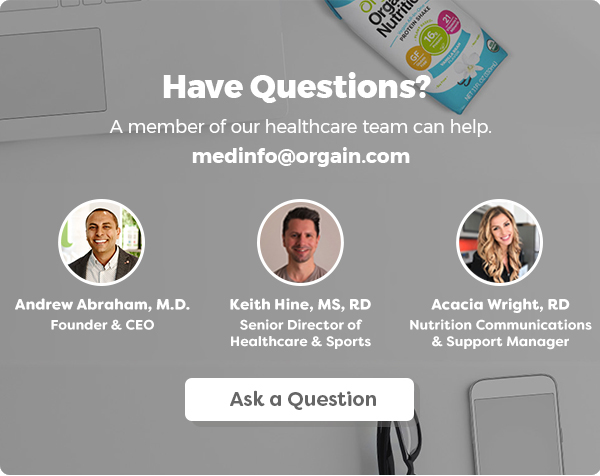
Modernization of Research: Precision Nutrition

What is the best way to eat to stay healthy? This is a difficult question to answer. Studies show that individuals have profound differences in response to eating patterns and risk for disease. ¹ The 2020-2030 Strategic Plan for NIH Nutrition Research ² details a multidimensional approach based on precision nutrition. The plan includes strategic goals and research focus areas as steps to achieve the overarching goal of improving health and fighting and preventing diseases affected by nutrition.³
Precision nutrition considers the many factors which influence health including dietary habits, food environment, genetics, health status, microbiome, metabolism, physical activity, socioeconomics, environmental exposures and psychosocial characteristics. In the U.S., an increasingly diverse population warrants examining these factors to understand and develop effective dietary recommendations to improve and maintain health for all.²
The U.S. healthcare costs for managing cardiovascular disease and stroke, obesity, type 2 diabetes, and cancer add up to hundreds of billions of dollars every year.4 Nutrition plays a role in the prevention and management of these and other chronic diseases and conditions,4 which lends considerable credibility to use of precision nutrition methods to fine tune the understanding of the effects of food and other factors on the development of health conditions and diseases.¹ The 2020-2030 Strategic Plan aims to use innovation, investigation of dietary patterns, and examination of nutrition needs across the lifespan for healthy development and aging to ultimately help reduce the burden of disease in clinical settings. The plan focuses on four key questions:¹
- “What do we eat and how does it affect us?”
This research ensures a strong foundation of nutrition science research and considers connections with bioinformatics, neurobiology and genomics. - “What and when should we eat?”
This research examines how specific dietary patterns uniquely influence health outcomes for individuals, subgroups and communities. - “How does what we eat promote health across our lifespan?”
This research will lead to a better understanding of how nutritional needs and eating behaviors change over time. The focus is on three understudied areas: pregnancy, infancy and toddlerhood, and older adulthood. - “How can we improve the use of food as medicine?”²
This research will expand knowledge about the role of nutrition in disease and grow evidence toward the development of medical nutrition therapies for improved health.
Artificial Intelligence and Deep-Learning Techniques
Some previous studies relied on self-reported dietary intake, and this approach has limitations even when adjustments are made for errors.5 Artificial intelligence (AI) and deep-learning techniques can detect specific dietary patterns in both new trials and existing studies to identify how variations in dietary intake affect health outcomes¹ while also considering eating behaviors and psychological processes. These techniques analyze the data collected and look for patterns, identify specific features of interest in the data and then find those same features in new data. Elements of interest in the data are labeled and the computer develops rules to identify the labeled data and ultimately, in nutrition science research, this information is assembled into trends that predict health outcomes.6 For example, AI and deep learning has been used to identify habits that are beneficial for managing stroke risk. This helps to establish real-life clinical guidance for at-risk individuals.7
Using these techniques leads to a better understanding of the diet as a whole, and when compared to benchmark statistical techniques used in the analysis of dietary patterns, this method is more accurate and can lead to valuable disease risk estimation.8 These patterns can be used to establish predictive tools and algorithms that healthcare practitioners can employ to help patients improve health outcomes.²
Precision Nutrition: Tailored Dietary Advice for Subgroups
Precision nutrition uses AI and deep-learning techniques to further individualize dietary advice. But it is not intended to provide unique, personalized prescriptions to individuals. The intention of precision nutrition is to stratify individuals into subgroups based on biomarkers and therapeutic efficacy. Simply put, precision nutrition can streamline nutrition advice to be more precise than current advice and improve dietary recommendations and interventions.9 The January 2021 issue of the Journal of the American College of Nutrition reflects on year-one of personalized nutrition and features four publications that explore precision nutrition topics and calls for researchers to determine how their future research may look deeper into precision nutrition.10
Precision Nutrition and Health Disparities
Certain populations defined by race, socioeconomic status, gender, ethnicity or geography are disproportionately affected by disease. One of the goals of precision nutrition is to examine ways to account for these disparities in a diverse U.S. population. Geography and socioeconomic status can make healthful foods inaccessible either due to cost or limited availability in food deserts.²
Pending specific criteria, some Orgain products qualify for reimbursement when using their respective Healthcare Common Procedure Coding System (HCPCS) codes through a Durable Medical Equipment provider. This makes Orgain more accessible to populations in need of better nutrition. Orgain’s shakes, bars and mixes are important sources of protein which is needed throughout life to build and maintain muscles, bones and skin.11 From both dairy and plant-based sources, Orgain products provide good, clean nutrition that promote good health.
![]()
1 Rodgers GP. JAMA. 2020;324(8):735-736. doi:10.1001/jama.2020.13601
2 2020-2030 Strategic Plan for NIH Nutrition Research. A report of the NIH nutrition research task force. May 2020.
3 US Department of Health & Human Services; National Institutes of Health. 2020-2030 Strategic Plan for NIH Nutrition Research. Published May 2020. Accessed January 27, 2021. https://dpcpsi.nih.gov/onr/strategic-plan
4 Centers for Disease Control and Prevention (CDC), Health and Economic Costs of Chronic Diseases. Accessed January 27, 2021. https://www.cdc.gov/chronicdisease/about/costs/index.htm
5 Subar AF. Journal of Nutrition. 2015;145(12): 2639–2645. doi: 10.3945/jn.115.219634
6 National Institutes of Health. The NIH Catalyst – A Publication About NIH Intramural Research. July August 2018 Vol 26 Issue 4. Accessed January 28, 2021. https://irp.nih.gov/catalyst/v26i4/machine-learning
7 Jiang F. Stroke and Vascular Neurology. 2017;2:e000101. doi:10.1136/svn-2017-000101
8 Panaratos D. British Journal of Nutrition. 2018;120(3) 326 – 334. doi: https://doi.org/10.1017/S0007114518001150
9 Zeisel S. Annual Review of Food Science and Technology.2020;11:71–92. doi:10.1146/annurev-food-032519-051736
10 Kopec RE. J Am Coll Nutr. 2021 Jan;40(1):1-2. doi: 10.1080/07315724.2020.1852130.
11 U.S. National Library of Medicine. Medline Plus. Dietary Proteins. Accessed 1/29/2021. https://medlineplus.gov/dietaryproteins.html

Personalize Your [Clients’] Plate this National Nutrition Month

March is National Nutrition Month® – a campaign created by the Academy of Nutrition and Dietetics that brings awareness to healthful eating and physical activity habits. The theme for 2021 is “Personalize Your Plate” – aimed at recognizing the uniqueness of every person and the importance of customized approaches to nutrition and health goals. We asked some of our Orgain Nutrition Advisory Board members about this year’s theme and what they are doing for National Nutrition Month®!
“Personalizing the plate is the only thing that really works for nutrition plans focused on weight management and diabetes,” says Laura Andromalos, MS, RD, CSOWM, CDCES. “People don’t blindly follow a meal plan. They want to understand how to make healthy eating fit within the context of their lifestyle.”
As a body positive registered dietitian nutritionist, Andrea Mathis, MA, RDN, LD is excited about National Nutrition Month because it recognizes that there are different approaches to obtaining optimal health and nutrition. “I will be sharing this message with my audience by highlighting that being healthy does not have a certain look,” says Mathis. “I will also be highlighting the importance of self-love and body acceptance, and how that plays a role in our overall health.”
Erin Palinski-Wade, RD, CDCES explains, “Since no two individuals are the same, no two eating plans should be the same. I like to tell my clients that all foods can fit as part of a healthy meal plan if you focus on balance.” To help them personalize their plate, we discuss their favorite foods, must-haves, and then identify nutritious swaps that can enhance their plate.” She adds, “Orgain plays a large role in helping to enhance nutrition, especially for meals on the go. Adding an Orgain Organic Nutrition Shake along with your banana in the morning is an easy way to boost your protein and fiber intake at the morning meal. Or, if you have time for a bigger breakfast, try swapping out the traditional pancake mix with refined flour and replacing it with Orgain Protein Pancake and Waffle mix to boost your intake of whole grains and protein.”
Whether you see patients and clients in hospitals, nursing homes, clinics or virtually, there are many ways you can incorporate the National Nutrition Month® theme Personalize Your Plate into your practice. Everyone at Orgain thanks you for all that you do to help your patients and client improve their health and reach their goals!

RDN Day: Meet the Orgain RDNs!
March 10, 2021 is Registered Dietitian Nutritionist Day! We’d like to take a moment to thank registered dietitian nutritionist and our Nutrition Advisory Board for the important work you do helping your patients and clients improve their health through nutrition. We’d also like to acknowledge the hardworking RDNs at Orgain for their important work bringing you accurate, evidence-based information and quality products that provide good, clean nutrition! Thank you!

“My greatest joy as a registered dietitian is having the opportunity to connect with countless healthcare professionals working on the frontlines helping their patients and clients achieve better health through nutrition. I am constantly amazed by the incredible work registered dietitians do with athletes, in hospitals and clinics and beyond. Thank you for the opportunity to work alongside you and support your efforts with Orgain’s high quality products.”
– Keith Hine, MS, RD, Senior Director of Healthcare & Sports

“I love being a Dietitian. This profession is so exciting because as RDs our impact is so diverse. We have the opportunity to positively influence, educate and empower others to live healthier, more vibrant lives. Through my work at Orgain, I find great fulfillment in this. My job also offers me a creative outlet to share my nutrition knowledge and expertise in unique and non-traditional ways. I’ve always been passionate about health, nutrition, food, and writing, so the work I do feels natural and energizes me. On top of that, working at Orgain has been a fantastic way for me to connect with healthcare professionals across the country I would have never otherwise had the pleasure of meeting. It’s an amazing thing!”
– Acacia Wright, RD, CD, Nutrition Communications and Support Manager

“Over the past 12 years of being an RDN, I’ve been fortunate to have worked in a variety of settings, including hospitals and private practice, but one area that I’ve been most passionate about is nutrition communications. In addition to being able to utilize my first degree in business, it allows me to use my creative muscle in areas like content creation and the opportunity to support brands that I genuinely believe in and recommend, like Orgain and their mission to helping people live healthy, vibrant lives.”
– Samina Kalloo, RD, CDN, Orgain Team at Pollock Communications

“As a registered dietitian, it is a privilege to work with a company so dedicated to providing clean, quality products that support good nutrition and health. Having the opportunity to connect healthcare professionals with Orgain products while sharing evidence-based information and research is a career dream come true!”
– Alex Oppenheimer Delvito, MS, RD, CDN, Orgain Team at Pollock Communications

Share Your Opinion
In January, we asked Orgain’s Healthcare Ambassadors for their thoughts on the 2020-2025 Dietary Guidelines for Americans. Here is what your colleagues had to say:
“Two things I really like about the guidelines: nutrition across the life span starting with infants, and the fact that full fat dairy is back on the menu (long overdue), albeit in limited portion sizes/frequency. The surprise: evidence suggested reducing daily alcohol consumption for men to the same limits as women but the committee decided not to change the recommendations.”
– Bill Masters, RD
We value the expertise of healthcare professionals and want to hear from you! Join the conversation and share your opinion in the Orgain Healthcare Ambassador Collective group on Facebook for a chance to be featured in next month’s newsletter!
For National Nutrition Month, how do you help patients and clients personalize their plates while working toward their health goals?
Click here to weigh in with other Orgain Healthcare Ambassadors! If you haven’t already, request an Ambassador account, then join the private group on Facebook. We look forward to hearing from you!

Upcoming Orgain-Sponsored Live Webinars by Subject Matter Experts

Jill Castle, MS, RDN
Approved for 1.0 CPEU for RDNs and DTRs
March 11, 2021 at 2pm EDT
REGISTER HERE

Kristin Hoddy, PhD, RD
Approved for 1.0 CPEU for RDNs and DTRs
April 22, 2021 at 2pm EDT
REGISTER HERE

Kathleen M. Zelman, MPH, RDN, LD
Approved for 1.0 CPEU for RDNs and DTRs
June 10, 2021 at 2pm EDT
REGISTER HERE

Becca McConville, MS, RD, LDN, CSSD, CEDRD-S
Approved for 1.0 CPEU for RDNs and DTRs
August 12, 2021 at 2pm EDT
REGISTER HERE

David L. Katz, MD, MPH, FACPM, FACP, FACLM
Approved for 1.0 CPEU for RDNs and DTRs
September 9, 2021 at 2pm EDT
REGISTER HERE

Beryl Krinsky, MBA, MS, RD, LDN
Approved for 1.0 CPEU for RDNs and DTRs
October 7, 2021 at 2pm EDT
REGISTER HERE

Angela Manderfeld, MS, RD, CDCES, BC-ADM
Approved for 1.0 CPEU for RDNs and DTRs
November 11, 2021 at 2pm EDT
REGISTER HERE

Practitioner Testimonial
“Orgain hits all the elements important to my patients, such as affordability and taste, and also give me confidence as a Gastroenterologist that I’m providing patients a clean, hypo-allergenic product that is well-tolerated. I use the nutrition shakes on those who need supplemental calories, even via feeding tubes, and the protein shakes for my post-bariatric patients on modified diets as well as those on weight loss programs. Orgain is the go-to in my GI practice.”
– Seper
Gastroenterologist




